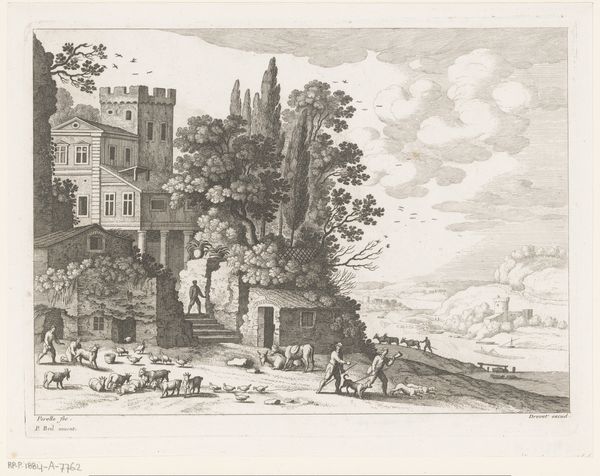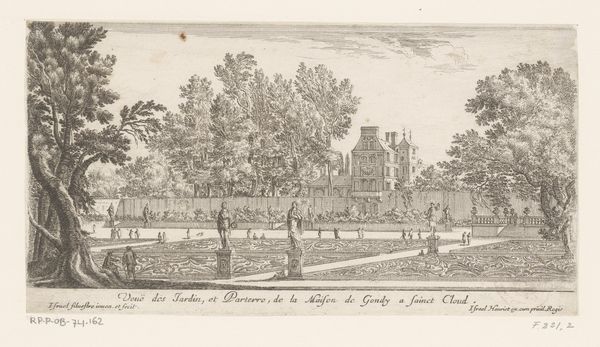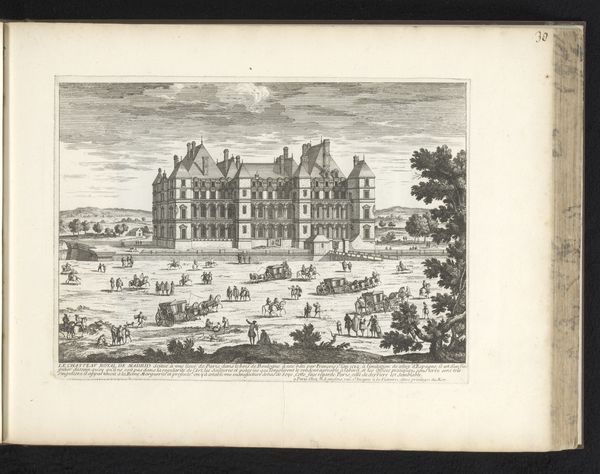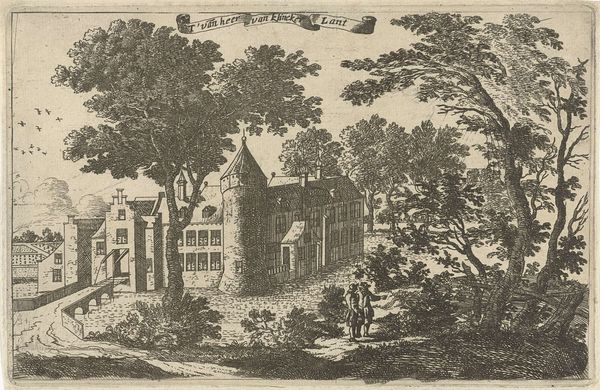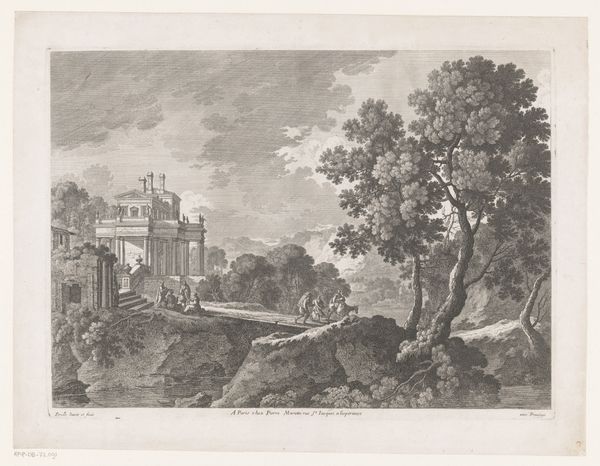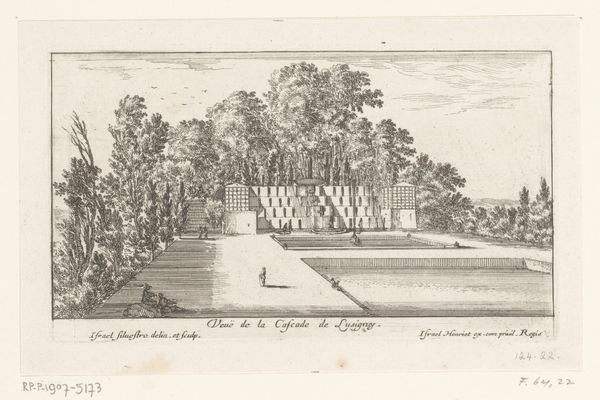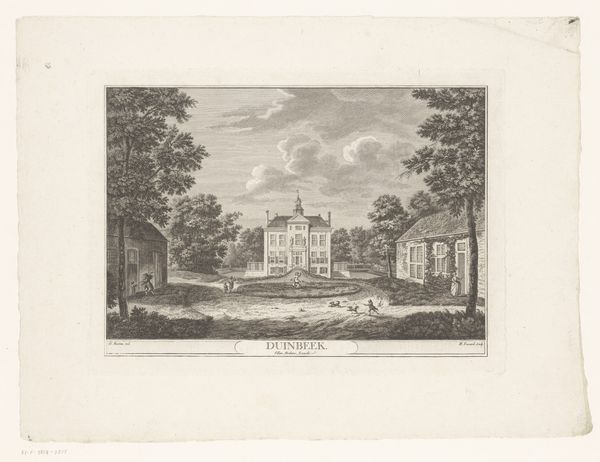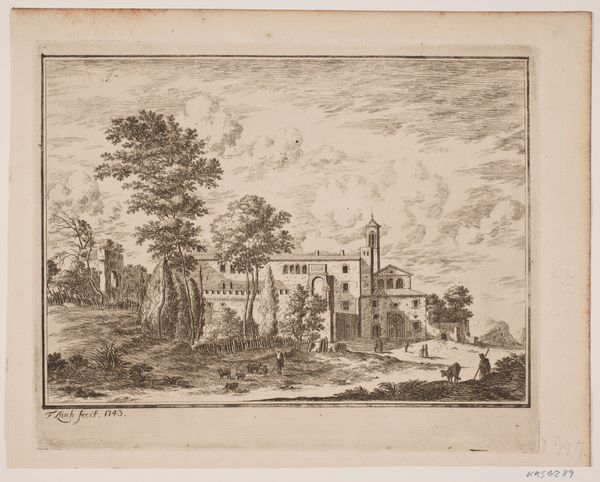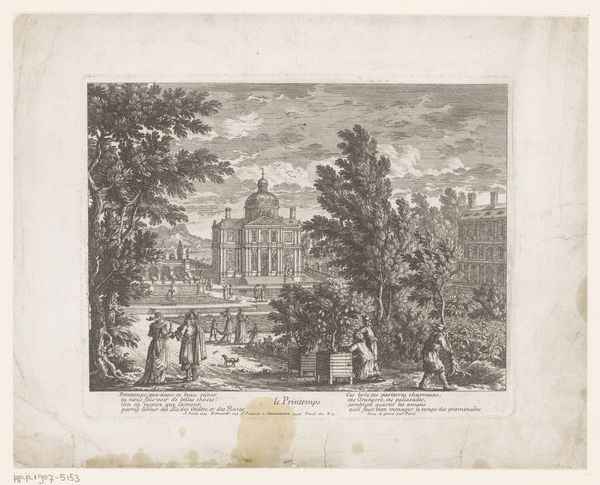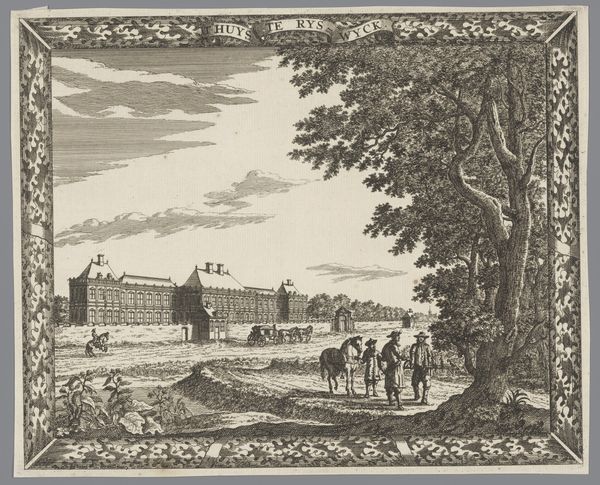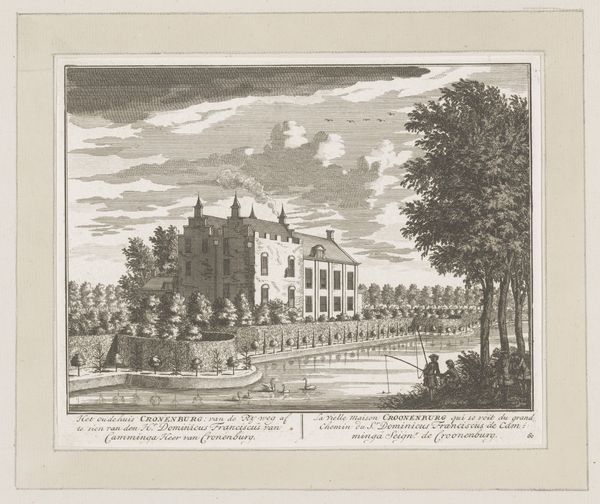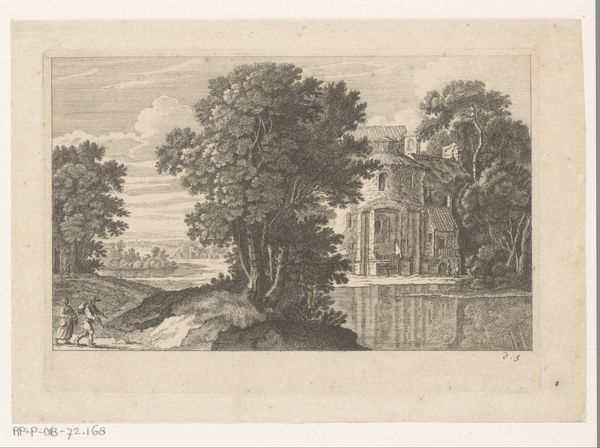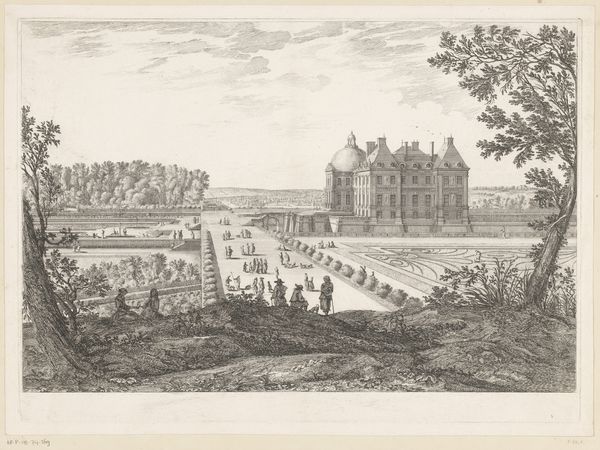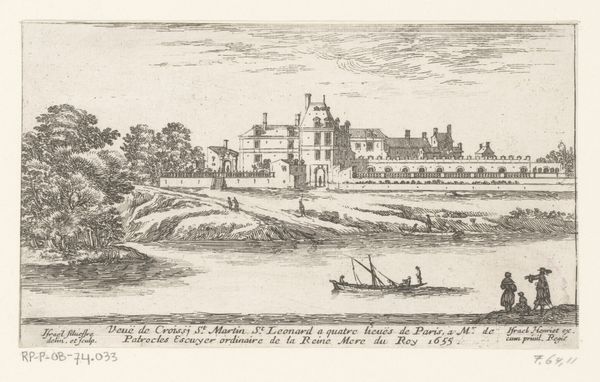
print, engraving
#
dutch-golden-age
# print
#
old engraving style
#
landscape
#
linocut print
#
geometric
#
cityscape
#
engraving
Dimensions: height 231 mm, width 283 mm
Copyright: Rijks Museum: Open Domain
Cornelis Elandts made this print, "Gezichten op Huis Te Blotinghe bij Rijswijk", sometime in the 17th century, using engraving—a process of incising lines into a metal plate, inking it, and pressing it onto paper. The stark contrast of black lines on a white field emphasizes the textures of the landscape. Imagine the repetitive labor involved in carving each line with a burin, a tool that requires immense control and precision. This meticulous process mirrors the detailed management of the depicted estate, reflecting a world where land ownership and its representation were markers of wealth and power. The print itself becomes a commodity, a collectible item signifying the status of both the owner of the house and the person who could afford the engraving. In an era defined by emerging capitalism, the print serves as both art and advertisement, blurring the lines between craft and commerce. It invites us to consider how the value of art is entangled with the social and economic conditions of its creation.
Comments
No comments
Be the first to comment and join the conversation on the ultimate creative platform.
